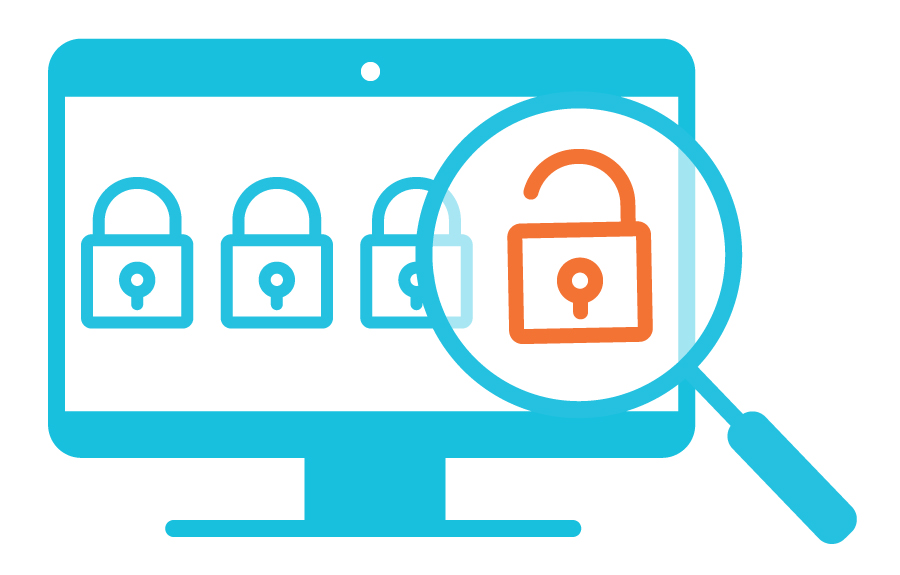
How Can E-learning Benefit from Efficient Security Testing
With technological enhancements, eLearning has turned out to be an effective mechanism for knowledge transfer. Students around the world have found this concept effective, considering the ease of accessing online courses. Through eLearning, educators can create courses, besides reaching out to the learners with the same. The students, on the other hand, can take assignments and submit tasks.To ensure a seamless performance of all these tasks, eLearning platforms need to be reliable, flexible and easily scalable. Therefore, the apps and websites for eLearning need to be tested properly. This makes security testing services a necessity for companies in the education niche.
What is eLearning testing?
Testing of eLearning platforms involves a complex process, which detects the presence of bugs in the dedicated software. This is a sort of quality assurance, which is necessary to ensure learnability through websites and apps. Evidently, most of the successful firms venturing into eLearning seek Security Testing Services from established professionals. Through proper testing, the app or website can be tested for learnability. The term learnability involves several aspects, that gauges the performance, accessibility, functionality and usability of the app.
Expert teams of testers examine aspects like user management, courses, instructions and other elements, ensuring that the modules seamlessly integrate with each other. Besides, you need to know whether or not the app would perform optimally when the maximum number of users log in the system together.
Besides, you need to test your app for vulnerability from time to time. Regular security audits ensure that information in the app would be secure to threats.
What are the most common tests for eLearning apps?
Professionals specializing in security testing services recommend the following tests for eLearning apps.
· Usability testing:This test determines how easy the learners find using the app, along with the comprehensiveness of the app.
· Functional testing: Through functional testing, all the features that the app come with get examined. Eventually, if one or more feature fails to deliver the desired performance, the experts fix them.
· Accessibility testing:This type of software testing for eLearning platforms make the app accessible to all the people using it, including the teachers and students. Regardless of their time zones, locations and dates, every user should be able to access the resources and features.
· Performance testing: Through performance testing, one can get a clear idea about how the apps are likely to perform under different scenarios and conditions. In case the performance is found to be low, you need to fix it, consulting the software developers.
· Security testing: Professional testers carry out security testing to identify any possible vulnerability or bug in the app, that may hinder usage. Besides, customer data may be compromised if you fail to have a robust security mechanism in place.
Different types of eLearning methods and their tests
You would expect your eLearning app to be free from all sorts of vulnerabilities and bugs. Traditional methods to get these apps tested are tedious, and consume a lot of time. Besides, the process turns out to be expensive, and the results lack accuracy most of the time. Therefore, you need to come up with a user-friendly app. A scalable, secure, flexible and reliable app can provide high-quality education or experience to the users.
Presently, you have different types of eLearning methodologies. These include:
· Flash-based eLearning methods
· Content assessment of courses online
· Web-oriented courses
· Server-based LMS
· Education courses based on CD-ROM
With digitization, the volume of content present in the cyberspace has been increasing. Besides, users now have different types of devices and platforms to access these resources. This has made security testing services for eLearning apps indispensable. At every stage of app development, you need to get it tested by the professionals. This would eliminate all possible errors, making them user-friendly. The scope of eLearning across the globe is vast, given that it has turned out to be a viable mechanism of education during the pandemic.
Prime metrics based on which eLearning apps are tested
· Here are some of the parameters based on which eLearning apps need to be tested
· Ensuring that the app gets globalized
· Detecting flaws early on, and resolving the issues
· Testing the eLearning apps for load and performance, which would prevent it from crashing when an online class is going on
· To make sure that the eLearning content appears to be user-friendly and appealing
· Consistently updating and upgrading the content
· Making eLearning apps compatible with different operating systems and devices
· To make sure that the course content is available, depending on the usage
· To simultaneously sync video and audio components of the courses
· Reinforcing security, particularly when the app involves acceptance of fees, or storage of critical data about the learners
Eventually, eLearning apps can comprehensively benefit from security testing. No wonder, why the leading platforms in this niche collaborate with seasoned professionals for software testing round the year.






